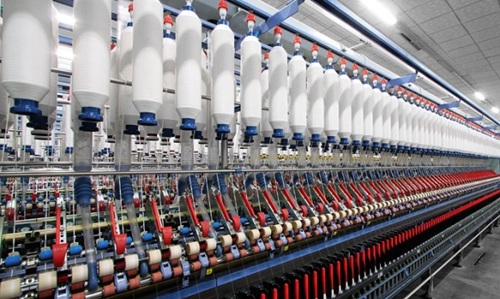Do you get confused when people in your circle are talking about Monopolies, or maybe you have heard it or seen it somewhere in headlines, right? But what does it actually mean? Well, worry not, we are here to explain it to you in the simplest words possible. Imagine a market in which there is just one corporation in charge, providing a given good or service free from actual competition. A monopoly is the state in which one player controls all of a market totally. That’s what it is!
Being the sole company of its sort, this one may establish rates and manage the availability of what it provides. They have no competitors in sight, hence they are free from concern about someone else undercutting them or providing anything better, you know? Monopolies can arise for a number of reasons: maybe they own all the critical resources, have special government licenses, have unique patents, or profit from large-scale operations unlike those of others.

Under a market of this kind, customers sometimes have very little options and that’s not a good thing at all. But still, let’s go over the pros and cons of this monopoly situation, so you can understand it even better. Here we go.
Advantages of Monopoly
1. Big Savings, Big Benefits
First of all, the large-scale production that these monopolies are often involved in, you see, helps to save literally tons of money to them, and that’s possibly the biggest plus. Thanks to more effective use of resources and technology, this implies they can reduce the cost of producing each unit as they get bigger, you know? Take the example of a water utility firm. By distributing its high infrastructure expenses among several clients, it can help to reduce the water price for all.
2. Profits Fuel Innovation
Monopolies might set higher prices and generate larger profits without competition, and that’s how it is. These can be reinvested into research and development, hence they are not only profits. For instance, pharmaceutical firms support the creation of new drugs using the earnings from their monopoly status, usually obtained by means of patents. Without a single doubt, major medical advances benefiting society at large can result from this very thing.
3. Steady Prices, Less Stress
Absence of competition allows monopolies to maintain kinda an equilibrium of pricing. Price wars could cause regular changes in prices in a market with many competitors. But under a monopoly, particularly in controlled sectors like utilities, costs usually remain constant, which helps consumers better budget overall, you know?
4. Support for Essential Services
Monopolies can sustain socially significant but perhaps unprofitable services using their earnings. For public transportation, for example, a monopoly can sustain less-used routes using profits from busy ones thereby guaranteeing everyone has access to required services, no matter what, and that’s a big plus for the customers’ end.
5. Kind Of A Global Edge
Monopolies help a business become more internationally competitive. How’s that though? Well, having a solid hold on the home market, a monopoly can use its resources and knowledge to grow worldwide. Want example? Well, you see, a dominating steel business, for instance, can use its size and financial strength to compete globally, therefore gaining from even more efficiency and market presence.
6. Smooth Operations
Being the only significant participant, a monopoly can simplify any aspect of its activities, including supply chain management and manufacturing, which are often the biggest operations. As the business can negotiate better deals and invest in innovative technologies, this can result in cost savings and maybe reduced consumer pricing.
Disadvantages of Monopoly
1. High Prices, Less Choice
See, you must understand that when there is only one company, prices can be high because there is no competition to keep them down. If only one company provides power, this may result in consumers having to pay more for goods and services, such as higher electricity bills, and that’s not good at all.
2. Innovation? Sure, But Not As Much Push For New Ideas
Since monopolies don’t have to worry about competition, they may not push to make their products or services any better, and that’s the very reason why industry experts consider a monopoly situation not a good one for the market or the customers.
3. Limited Choices for Consumers
Consumers have fewer options when one company is dominant, and why is that? Well, it’s pretty simple, people often have no other choice if that company’s product or service doesn’t meet their wants. It’s especially annoying when there are only a few options for something like internet service and that service isn’t very good.
4. Efficiency Can Take a Hit
Monopolies might not feel the need to cut costs or work quickly if there are no competitors. This could cause prices to go up and products to be of lower quality. Also, they might not be able to adapt quickly to new technologies or changing customer tastes, that’s a con too.
5. Tough for New Players to Enter
When there are monopolies, it’s hard for new companies to get into the market and we all know that. New companies may find it hard to compete with them because they may own important resources or tools that no one else has. Moving the market? Well, forget about that with the monopoly situation!
6. Exploitation Risks
By imposing high prices on consumers and putting pressure on suppliers or workers, monopolies can abuse their power. Because they don’t have many choices, suppliers may have to lower the prices they charge for their goods, and workers may have to accept lower pay because they can’t find other jobs, and that’s how it goes.
7. Regulatory Challenges
Monopolies are meant to be restrained by government regulations, but this doesn’t always happen. Regulators might not always do what’s best for the public, especially if the industries they’re meant to watch out for try to influence them. Monopolies may be able to keep acting unfairly as a result.
Comparison Table for Advantages and Disadvantages of Monopoly
| Advantages | Disadvantages |
| Cost savings through large-scale production | Higher prices due to lack of competition |
| Profits can drive innovation | Reduced incentive for product improvement |
| Stable pricing for consumers | Limited consumer choice |
| Support for unprofitable essential services | Inefficiencies and higher costs |
| Competitive advantage internationally | Barriers for new market entrants |
| Streamlined operations | Potential exploitation of power |
| Inconsistent regulatory oversight |

